Summer ‘21 Sustainable Road Trip Tips
The sun is out, pandemic restrictions are lifted, and we’re all itching for a summer adventure. Before striking out, take a moment to plan for a trip that’s as easy on your wallet as it is on the planet.
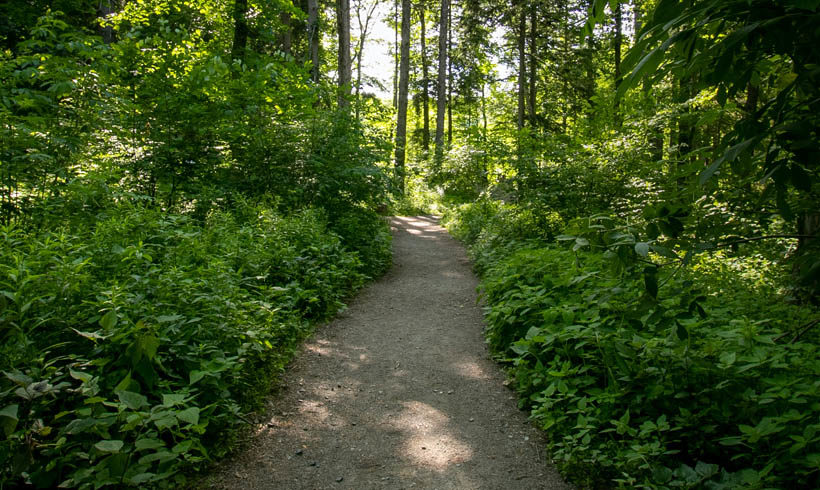
Bring Reusables
When you’re on the road, it’s easy to fall into the habit of grabbing plastic cutlery, paper napkins, and single-use bags in the name of convenience. Not only do these items increase your carbon footprint, they fill your already packed car with unnecessary trash. Avoid the hassle by remembering your reusable mugs, cloth napkins, and cutlery kits that can be rinsed easily with a bit of water. On that note:
BYO Snacks and Meal Planning
Whenever possible, bring your own snacks for the car and plan your meals ahead. It’ll save you time and money while keeping the trash to a minimum. Even better, packing your food ahead lets you use your own reusable containers and bags that can be utilized over and over throughout the course of your adventures. Sure, you may still opt to grab a traditional gas-station snack along the way, but everything in moderation, right?
Boost Your Vehicle’s Efficiency
Did you know storing luggage in a rooftop carrier can decrease a vehicle’s fuel efficiency by 20%? Or that every 1% decrease in tire pressure translates to 0.3% reduction in fuel economy? To ensure you’re at peak performance, head to your mechanic for a pre-trip once-over. Once the trip is underway, drive sensibly: Aggressive driving (speeding, rapid acceleration and braking) can lower gas mileage by 15% to 30% at highway speeds and 10% to 40% in stop-and-go traffic. Turn on the cruise control and arrive at your destination safely.
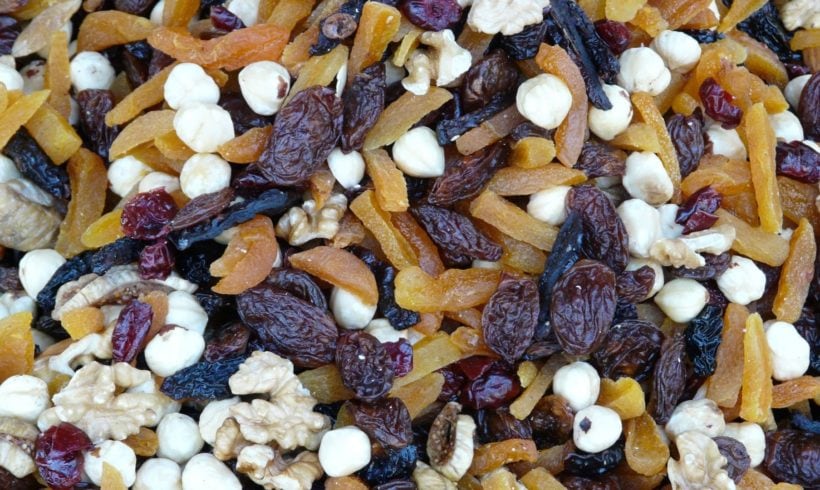
Bring your own healthy trail mix to enjoy on a hike.
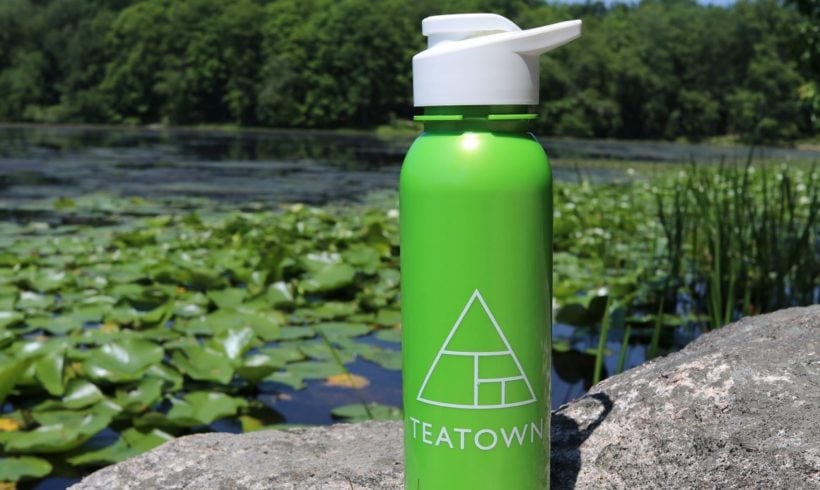
Bring a reusable water bottle instead of a plastic one.
Leave It Better Than You Found It
You’re not the only one looking for an escape. More people inevitably means more litter, so be part of the solution by practicing “leave no trace” principles. If you pack it in, pack it out (yes, even your orange peels). Even better, leave the hiking trail, campground, parking lot, or picnic area better than you found it by removing any trash you find along the way. Overuse isn’t just bad for the planet, it’s bad for people, too. Abuse of public use areas can lead to closures or paid permitting systems which inherently restrict access to green space.
Buy Local
Get the full experience by trying out the local fare. Escape the monotony of big box stores and chain restaurants and instead seek out locally owned businesses that help keep your dollar where you spend it. It’s also a great way to get to know the people, places, and traditions that make a trip so special.
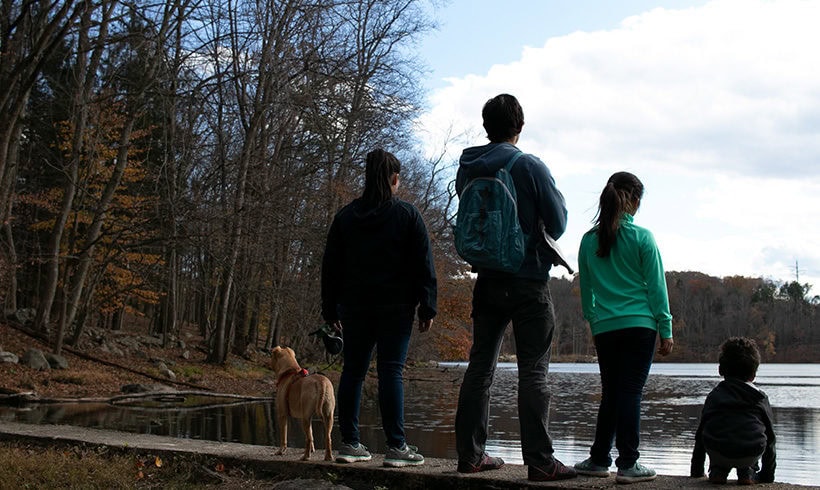
Keep your dogs leashed at all times.

Don’t forget to “leave no trace” with you waste when visiting Teatown.
Keep Dogs Leashed
The only thing better than making memories with your furry friend is making memories with your furry friend while respecting the wildlife and wild places you visit with them. Even the best-behaved companions can wander off the path. Only go where dogs are permitted; a dog’s presence disturbs wildlife which can induce long-term stress, impact animals’ immune systems, and reduce reproduction. Where dogs are allowed, be sure to follow the rules on leashing and leash length. Even leashed pets have been shown to alter wildlife movement and behavior hundreds of meters off the trail. And of course, pick up your dog’s poop!
Offset Your Carbon Footprint
If you’re willing to go – excuse the pun – the extra mile, compensate for the unavoidable impacts of your trip by purchasing carbon offsets. When you buy carbon offsets, your money is invested in carbon reduction projects that help improve energy infrastructure for people and the planet.

About the Author
Nadya Hall
Community Environmentalist
Nadya has her master’s in environmental policy with a focus on human-wildlife coexistence. She is passionate about the conservation of wildlife and wild places through science, advocacy, and environmental education.


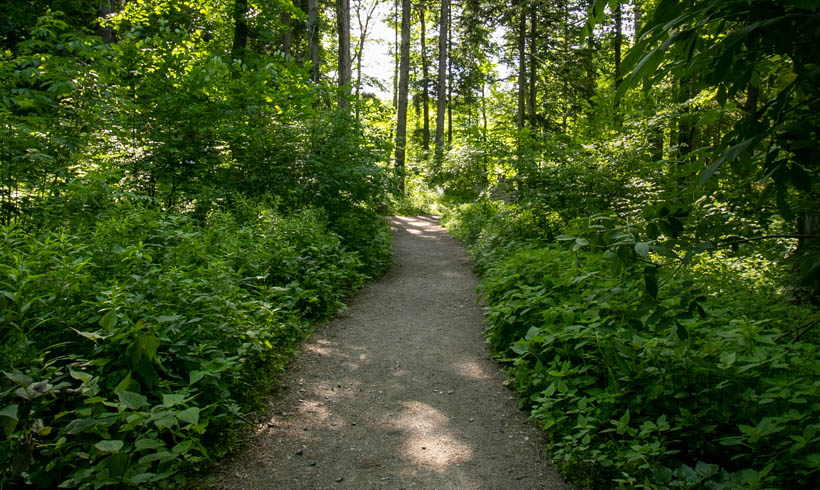
Leave a Reply